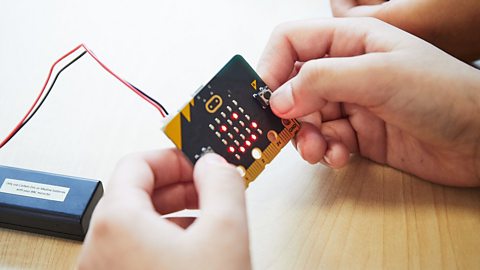The BBC micro:bit – the next gen campaign aims to equip children with digital skills and includes free resources and teacher training that's available to primary schools across the UK.
The deadline for UK primary school teachers to sign up for a free classroom set of 30 micro:bits was Monday 18 December at 5pm. If you didn't register, micro:bits are available to borrow from some libraries - check with your local library for further information - and you can also purchase them for your school.
Read on to find out more about the training available for teachers so they can teach coding with confidence, along with information on a range of free classroom resources.
Coming soon: Primary school pupils will have the chance to get involved in a large-scale playground survey in the summer term. The development of exciting lessons and activities around this survey will introduce children to machine learning and working with digital data. Check back on 20th February to find out how your school can take part!
Please be aware that some of the links on this page will take you away from the BBC.
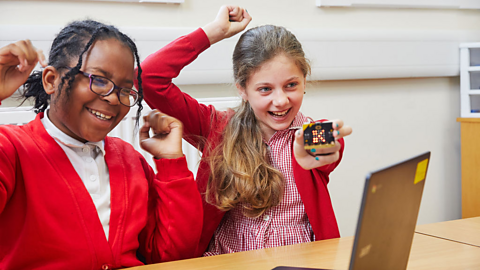
What micro:bit teacher training is available?
Teaching primary school children about coding can sound daunting. That’s why our partners from across the nations will be providing regional training opportunities for teachers around the UK, all about teaching with the micro:bit.
Teachers can access free online and in-person training to help boost their confidence when using the micro:bit in the classroom with pupils and to help them get prepared for the upcoming school year.
Visit our teacher training page to find out more.
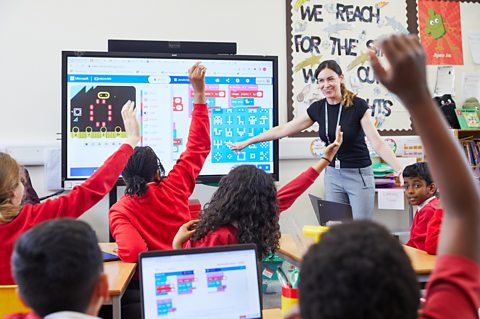
Did you know…?
The first micro:bit was launched in 2015 by the BBC and partners and afterwards the Micro:bit Educational Foundation was created as a global non-profit brand to support children, educators, and anyone who wishes to learn about coding.
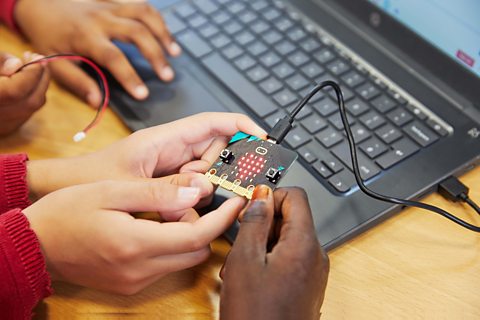
What classroom coding resources are available for teachers?
As part of launch week, we released a video detailing the ins and outs of the micro:bit, that primary schools can watch in assemblies. Gamer FalseSymmetry features alongside Newsround’s De-Graft Mensah in the video that highlights some of the micro:bit’s exciting features and capabilities - Watch the BBC micro:bit assembly video
Alongside the video there are a range of free resources that will help schools to start teaching as soon as they receive their micro:bits. These include six getting started projects that have been created by the Micro:bit Educational Foundation.
The delivery of free micro:bits is taking place up until the end of March 2024 so while schools are waiting there is the opportunity to enhance coding confidence with Microsoft MakeCode. This software allows you to immerse yourself in the world of coding by having a go at programming a virtual micro:bit.
Did you know…?
Since 2015, 6.5 million micro:bits have been manufactured and an estimated 42 million children have been using them to learn digital skills in over 60 countries.
Where can I see the micro:bits on TV?
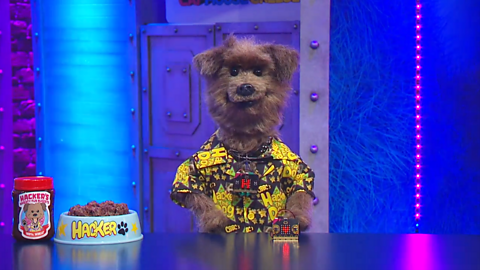
CBBC viewers got to see the micro:bit in action when Evie Pickerill and Newsround's De-Graft Mensah joined Hacker in the studio for a fun-filled week of games and activities as part of the September launch week.
There were also special micro:bit features in Blue Peter and Saturday Mash-Up, plus micro:bit appearances in The Football Academy, Bro's in Control and Lagging.
And it doesn’t end there… keep your eyes glued to your favourite CBBC shows over the coming months to see more surprise appearances from the micro:bit! Don’t forget to tell children to watch out for them and look out for teaching resources to accompany them.
Did you know…?
Some of the most ambitious micro:bit projects to date have included rotating a giant observatory telescope, turning on the lights on Blackpool Tower and even sending a micro:bit into the stratosphere. What will the UK’s school children come up with this time around?
Do children need a micro:bit to start learning to code?
As part of our BBC micro:bit – the next gen campaign, we’ve also launched a child-facing area of the site where children can practice to code at home using a virtual micro:bit that simulates programming on the device.
The Code Your Own Way page includes links to fun activities such as creating an electronic pet or programming a famous tune. Plus, there are links to related Computing content on Bitesize that is suitable for 8 – 11 year-olds.

More from BBC micro:bit - the next gen
BBC micro:bit playground survey
Discover seven cross-curricular activities to find out more about your playground.
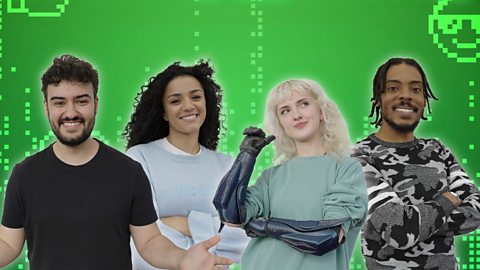
Training resources for teachers
Find out about the free courses - both online and in-person - to help primary schools teach about the micro:bit.
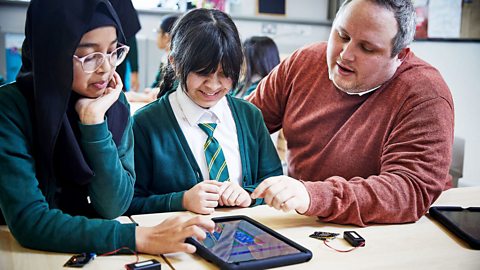
Classroom resources
Check out resources that will help you get ready once you receive your micro:bits.
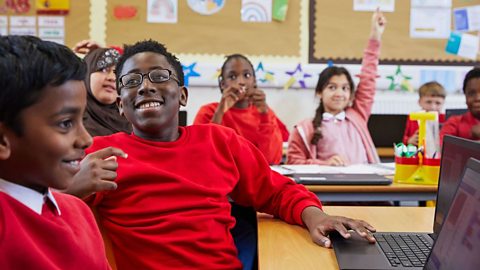
Quiz: Is your coding knowledge better than a primary school pupil's? quiz
See how you score in our fun quiz that's based around the primary school curriculum and beyond.
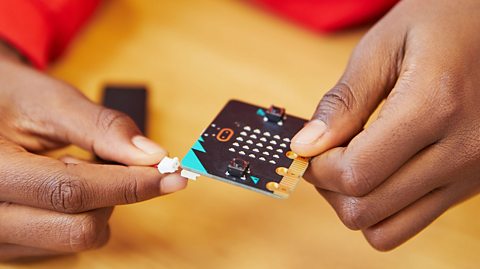
What's inside the micro:bit box? video
Watch an unboxing video and find out how to get coding in less than 60 seconds.
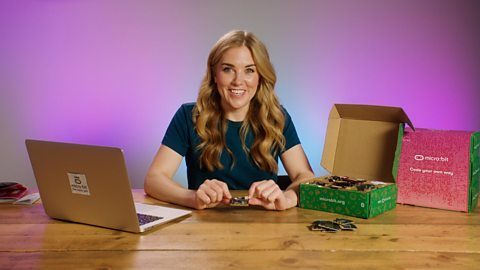
Coding made easy with the MakeCode platform
Find out more about using MakeCode and the training resources available to get you started.
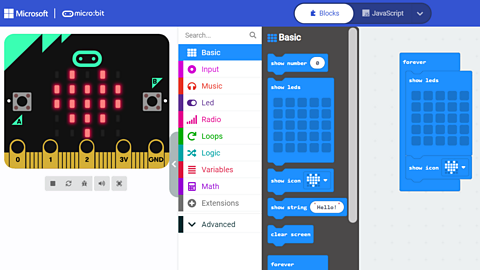
Behind the scenes of Blue Peter's micro:bit challenge
Blue Peter presenters Abby and Joel take part in an escape room challenge powered by micro:bits.
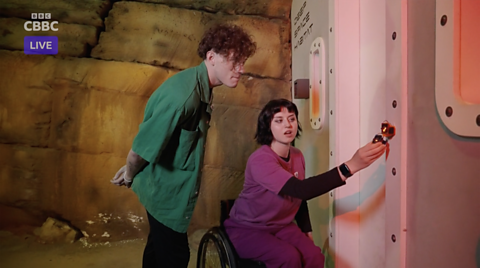
Surprise! Celebrities deliver micro:bits to primary schools
Find out what happened when celebrities including Blue Peter's Abby Cook surprised school pupils around the UK.
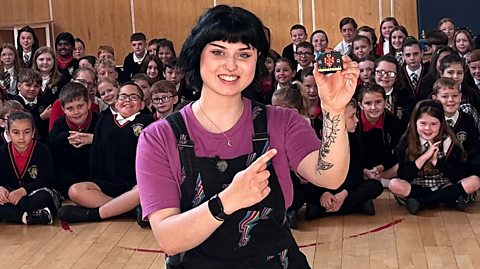
FAQs
Get the answers to all of your questions about the micro:bit.
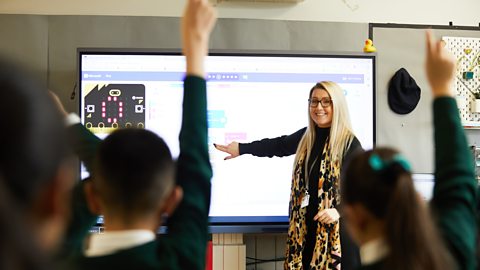
'We need computer scientists and coders from all backgrounds'
TV presenter and EduTuber Maddie Moate on inspiring the next generation of coders.

About the micro:bit
Find out everything you need to know about the BBC micro:bit.
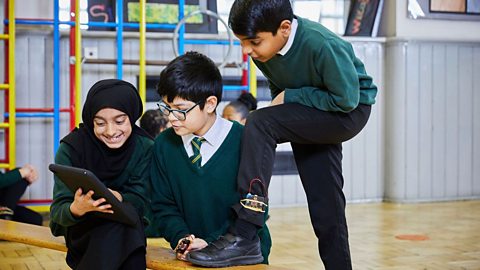
Our partners
Find out more about the organisations supporting our micro:bit initiative.
